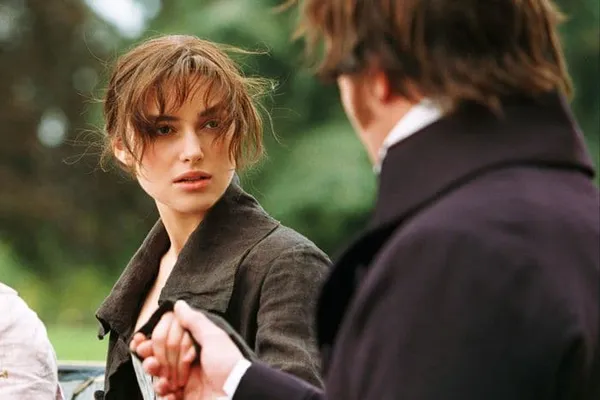Eye For Film >> Movies >> Pride (2021) Film Review
Pride
Reviewed by: Andrew Robertson

"Ten wack things about financial aid," a discussion in editorial for a student newspaper. The processes of printing, sun through those windows on black skin, black aprons, black ink. Pride on the masthead. Pride in their faces.
This is far from Kevin Jerome Everson's first film about labour, though at eight minutes it is just one sixtieth the length of his opus Park Lanes. As observational though, "do you think we'll get in trouble for this", shot within the University of Virginia and set in 1990. Almost but not entirely like a documentary, it's a gentle, almost dreamy set of moments.
Collaborating with Claudrena Harold they both appeared in a pre-recorded Q&A at 2022's Glasgow Short Film Festival. They talked about its origins within the Black Fire project at the University, that Pride magazine was a testimony to the "wit and grit" of the students who wrote and made it. The juxtaposition of "political discourse" and the operation of the mechanical printer a reflection of their techniques as film-makers. A phrased used by Everson in relation to the printing technique of "getting the issues out" is reflective of each of the processes depicted. It's a meditative piece, in effect a historical recreation. That it was shot on film, an Arri, rather than video is more likely a result of Emerson's processes as an attempt to make it feel older than it is. While it's possible (even Instagram worthy) to date things by what's on the televisions in the background there's a further dating from how the televisions look.
When talking about the processes of working with the students, they discussed the need to make it more "casual". The Paul Robeson Players were trying to recreate the projection of stage, to talk to camera. Eventually they hit the natural tone of "episodic normalcy", speech about the economic consequences for students hits for those the Seventies, Eighties, Nineties and beyond. "being black in a predominately black space means [they are] hypervisible and invisible at the same time". There's an echo in that of its programme mate Neon Phantom, the complex divides between the seen and unheard.
For all its power as a document, the "energies and perspectives of the current moment", that in "some ways it transcend[s] time" is true, but it can't quite transcend place. For all its universalities, this is something rooted in the very particular terroir of American further education. That we are now in 2022 as far from 1990 as 1990 was from 1958. Though that was four years after Brown vs Board of Education the state of Virginia still had segregated schools. The landmark case of Cooper vs Aaron further cemented a doctrine of judicial supremacy over the States which may well be tested if not worse in the near future. All this past could have been prologue, but isn't. If presented in what might be a more natural habitat, the institution itself, some of this context would be provided by the walls themselves. Without it this is a piece of tone that, however pleasant, does less to communicate than it might.
Reviewed on: 26 Mar 2022















